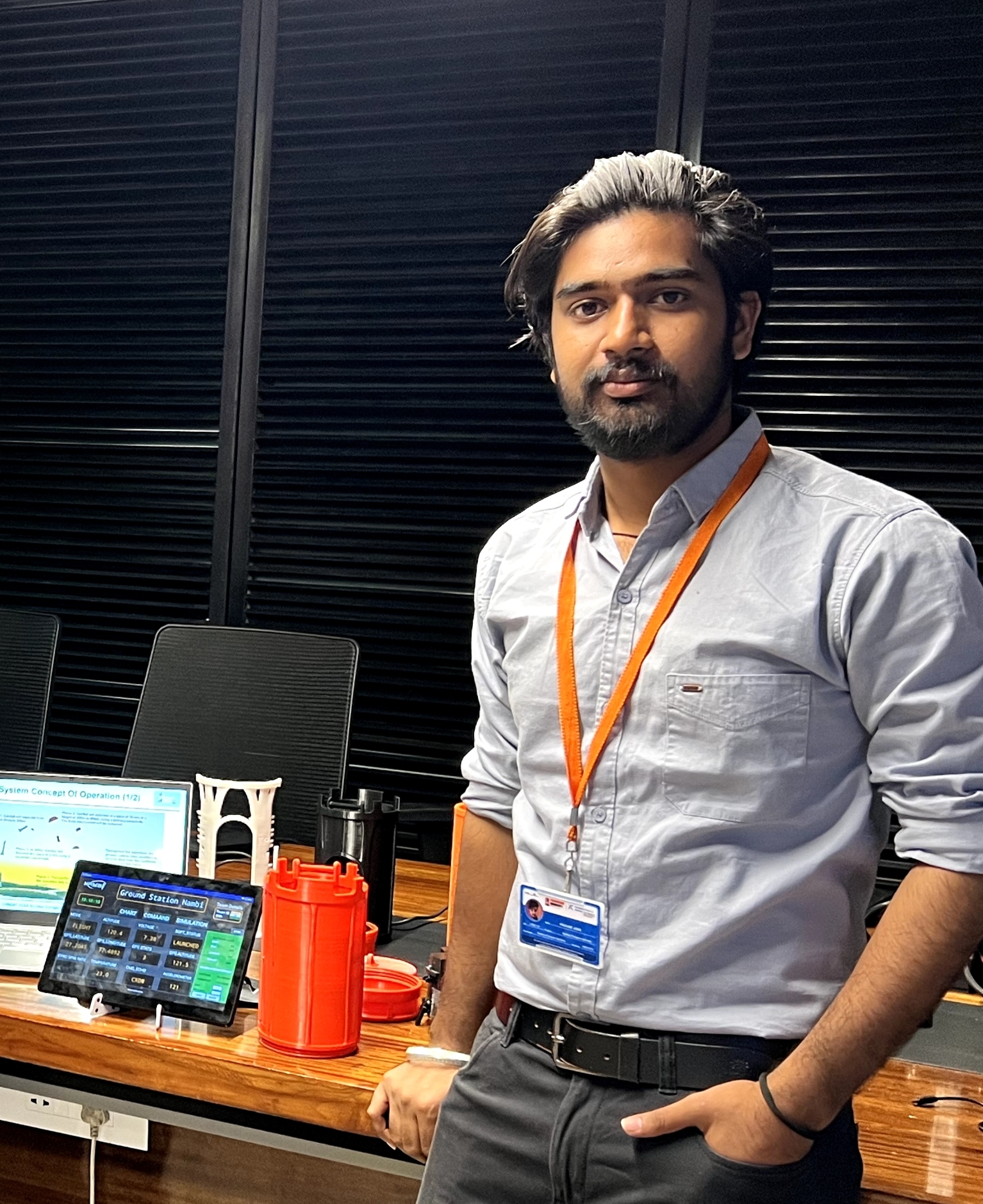Kuldeep Tomar serves as the Head of Information Security at Games24x7, where he leads the organization’s cybersecurity strategy, vision, and programs dedicated to safeguarding information assets and technologies. With over 25 years of experience, Kuldeep is a highly qualified technocrat and seasoned IT professional. His expertise extends to managing large-scale IT projects, security engineering, governance, data management, operations, compliance, program management, and solutions.
Throughout his successful career, Kuldeep has held various key roles such as IT Director, Security Architect, Program Manager, and Pre-sales in both strategic and flagship engagements for startups and Fortune 500 organizations including Oracle and Tech Mahindra. He brings a wealth of experience across diverse domains, including Telecom, Finance, Contact Centre, and Gaming.
In an exclusive conversation with The Interview World, Kuldeep delves into the pivotal trends within the cloud gaming space. He imparts valuable insights on constructing a robust security framework and explores the pivotal role played by AI and ML in elevating security standards in cloud gaming. Here are the highlights from his interview:
Q: Looking ahead, what emerging trends or technologies do you believe will shape the future of information security in the cloud gaming space, and what should companies in this industry be prepared for?
A: We have been pioneers in the real money games industry. This also led us to abide by the strict regulations required. We also believe in self-regulation and providing a secure gaming platform to our end customers.
For online gaming, we have to deal with a dynamic threat landscape. Securing and managing large cloud infrastructure with rapid elasticity is a challenge and requires security to be in-built at all stages of development and operations. I can think about below emerging trends or technologies:
- DevSecOps: Security will be seamlessly integrated into the development process, fostering a culture of proactive security measures rather than reactive patches.
- Platform engineering: Shift security left by incorporating security tools and processes into platform engineering. This can empower developers to take control by learning about misconfigurations and vulnerabilities right when resources are created.
- Quantum Cryptography: Offering unassailable security through quantum key
distribution, a game-changer in the battle against encryption breaches. - AI-Driven Threat Detection: Machine learning algorithms will become more adept at identifying complex patterns, enhancing our ability to detect and mitigate
sophisticated threats in real-time. - IoT Security Maturation: Significant stride in IoT security, with standardised protocols and embedded security measures
- 5G Networks Reinforce Security: The rollout of 5G networks will not only revolutionise connectivity but also bolster security. Enhanced encryption and low-latency communication will be instrumental in securing data transmission
- Extended Detection and Response (XDR): XDR platforms, integrating multiple security layers, will enable organisations to correlate data, detect threats across various vectors, and respond promptly, all under one roof.
- Privacy-Preserving Technologies: Privacy concerns and regulations will catalyse the development of privacy-preserving technologies like homomorphic encryption that will enable secure computation on encrypted data.
- Supply Chain Security Reinvented: Blockchain technology will be harnessed to create transparent and immutable supply chain networks, ensuring the integrity and authenticity of digital and physical assets.
Q: Can you explain the key components of a robust security framework for cloud gaming, and how it differs from other sectors?
A: The gaming platform is all about innovation and the science of gaming. So, the product team/data science team keeps experimenting with new technologies to build cutting-edge features and new games. So, in this process of experimentation, unless you have a robust security framework implemented, games are prone to continuous cyber-attacks and breaches.
Some of the key factors while building a security framework for the company:
- Volume of Transactions: There can be billions of transactions in a single day. For such a large volume of transactions, you cannot rely on manual security monitoring or operations. You need an automated system for monitoring and observability.
- Time Sensitivity: Online games are very time-sensitive and even a delay of microseconds can cause bad user experience. So, you cannot add agents on application servers. So, you need to be wary about any security solution and its impact on run time.
- User experience: User experience is key for all online games. Any slight delay or bad experience will lead the player to switch the loyalty and move to a different platform.
- Third-party integrations: Gaming applications need integrations with third parties for messaging or fraud detection. So, you need to take care of security and mitigate key risks related to vendor integration
- Accessibility: Online games need easy accessibility for the players
- Large Campaigns: There is a need for continuous marketing and campaigns for player engagement. So, you need to create new tournaments and engage the players.
So, while building a security framework, you need to focus on user experience, easy accessibility and not adding any control which can add any latency. This can’t be achieved in a traditional way. You need to start with security as part of development and operations. You need to use automation and machine learning to detect early and respond to any security vulnerabilities.
Q: What role does encryption play in securing user data and gaming content in the cloud, and how is it implemented effectively?
A: As I explained above, accessibility, user experience, and time sensitivity are key factors for online gaming applications. So, you need to be creative while applying encryption on user data and gaming content.
But data security is also of utmost critical to us. We have millions of users and related transactions. If you have the best firewall, very tight security policies, hardened operating systems, virus scanners, intrusion detection software, antispyware, and every other computer security covered but send your data in raw, plain text, then you simply are not secure. So, encryption and data anonymisation is the key for us.
So, we make sure that:
- Keep data centralise and not create multiple copies. Keep this data encrypted.
- Encryption is applied to all sensitive and confidential data in rest/transit
- Make sure that all the databases and storage for sensitive/confidential data are encrypted
- Use the strong ciphers
- Use customer-managed keys for data stored on the cloud and keep these keys securely
- Use symmetric keys where performance is the key
- Mask/anonymise sensitive data for internal/external users
- This data is accessible on a need-to-know basis having access to required keys
- Rotate these keys on a regular basis
- Keep audit logs for access to these keys and review/monitor these audit logs
Q: How do cloud gaming services address the potential for Distributed Denial of Service (DDoS) attacks, which can disrupt gameplay and availability?
A: Cloud gaming services face the potential threat of Distributed Denial of Service (DDoS) attacks, which can disrupt gameplay and availability by overwhelming the service infrastructure with a massive volume of traffic. To mitigate the impact of DDoS attacks, cloud gaming services employ a variety of strategies:
- Managed Services for Traffic Filtering and Scrubbing: We are using managed services to identify and mitigate DDoS attacks. This employed DDoS mitigation services to filter and scrub malicious traffic. These services analyze incoming traffic in real-time, identifying and blocking malicious requests while allowing legitimate traffic to pass through.
- Content Delivery Networks (CDNs): We leverage CDNs to distribute content across multiple servers. CDNs help distribute the load, making it more challenging for attackers to overwhelm a single point of entry.
- Rate Limiting and Traffic Shaping: Our gaming platforms implement rate limiting and traffic shaping to control the volume of incoming requests from a single source. This helps prevent the rapid influx of traffic associated with DDoS attacks.
- Behavioural Analysis: We use Advanced security systems to analyse the behaviour of incoming traffic to identify patterns consistent with DDoS attacks. Unusual spikes in traffic or patterns that deviate from normal user behavior trigger alerts, enabling proactive response measures.
- Redundancy and Failover Mechanisms: Our Cloud gaming services designed infrastructure with redundancy and failover mechanisms. If one server or data center is under attack, traffic can be redirected to alternative locations, ensuring continuous availability.
- Security Best Practices: We have implemented security best practices, such as keeping software and systems up-to-date with the latest patches, which helps reduce vulnerabilities that attackers might exploit in launching DDoS attacks.
- Incident Response Plans: Having well-defined incident response plans allows cloud gaming services to quickly identify and respond to DDoS attacks. This includes communication strategies, coordination with DDoS mitigation providers, and steps to restore normal operations.
Q: How has the shift to cloud gaming platforms impacted the overall security landscape in the gaming industry?
A: The shift to cloud gaming platforms has significantly impacted the overall security landscape in the gaming industry. Here are several key ways in which this transformation has influenced security considerations:
- Account Security: With the cloud gaming model, user accounts and credentials are often stored remotely. This has led to an increased focus on account security to prevent unauthorized access, identity theft, and other malicious activities. Multi-factor authentication and secure login practices have become more prevalent.
- Cloud Infrastructure Security: Cloud infrastructure can be accessed from anywhere. Cloud gaming platforms must implement robust security measures to protect against unauthorized access, data breaches, and other cloud-specific vulnerabilities. This includes proper configuration of cloud services, regular security audits, and adherence to best practices.
- Data Protection and Privacy: Cloud gaming platforms involve the storage and processing of sensitive user data in remote servers. This shift has heightened concerns about data protection and privacy.
- Network Security: Cloud gaming relies heavily on internet connectivity. This increased dependence on online networks has expanded the attack surface for potential threats. Security measures to protect against network-based attacks, such as Distributed Denial of Service (DDoS) attacks, have become more critical.
- Piracy and Cheating: Cloud gaming platforms can pose new challenges in terms of piracy and cheating. Developers need to implement effective anti-cheat mechanisms to ensure fair play, and cloud-based DRM (Digital Rights Management) solutions are crucial to prevent unauthorized access to game content.
- Endpoint Security: Cloud gaming often involves streaming game content to various devices, including PCs, consoles, and mobile devices. This diversification of endpoints requires a focus on endpoint security to protect against malware, unauthorized access, and other threats on the user’s devices.
- Third-Party Integrations: Many cloud gaming platforms integrate with third-party services, such as social media platforms and streaming services. These integrations introduce additional security considerations, including the need to secure third-party APIs to prevent potential vulnerabilities.
In summary, the shift to cloud gaming platforms has broadened the scope of security challenges in the gaming industry. As the industry continues to evolve, security measures will need to adapt to new technologies and emerging threats.
Q: Given the growing importance of personal information in gaming accounts, what are the best practices for user authentication and account protection in the cloud?
A: Nowadays, user accounts and personal information leak is the major source of further security attacks or fraud. So, protecting user accounts in the cloud gaming environment is crucial, especially considering the increasing importance of personal information tied to these accounts. Here are some best practices for user authentication and account protection in the cloud gaming industry:
- Multi-Factor Authentication (MFA): Implement multi-factor authentication to add an extra layer of security. MFA significantly enhances the security of user accounts.
- Strong Password Policies: Enforce strong password policies, including the use of complex passwords with a mix of uppercase and lowercase letters, numbers, and special characters.
- Account Lockout Policies: Implement account lockout policies to prevent brute-force attacks. If an attacker repeatedly tries to guess a user’s password, the account shall use a “Captcha” or lockout mechanism after a certain number of attempts.
- Email/OTP Verification: Require users to verify their account using email/SMS/WhatsApp during the account registration process.
- Device/location Verification: Implement device/location verification mechanisms to ensure that users are logging in from recognized and trusted devices from specific locations.
- Continuous Monitoring: Implement continuous monitoring of user account activities to detect and respond to suspicious behavior. Anomalies in login patterns, multiple failed login attempts, or unexpected changes to account settings should trigger alerts for further investigation.
- Session Management: Implement session timeouts to automatically log users out after a period of inactivity. Additionally, use secure session management practices to prevent session hijacking.
- OAuth and OpenID Connect: When integrating with third-party services, use secure authentication protocols like OAuth and OpenID Connect. This ensures that user credentials are not exposed during the authentication process and that only authorized information is shared between services.
- Education and Communication: Educate users about security best practices, including the importance of strong passwords, avoiding password reuse across platforms, and recognizing phishing attempts.
- Regular Security Audits: Conduct regular security audits of user authentication processes and account protection measures. This includes reviewing code for vulnerabilities, assessing configuration settings, and testing the effectiveness of security controls.
- Incident Response Plan: Develop and regularly update an incident response plan for account security breaches. This plan should include procedures for quickly identifying and responding to unauthorized access, as well as communicating with affected users.
By implementing these best practices, cloud gaming platforms can significantly enhance the security of user accounts, protecting personal information and ensuring a safe and enjoyable gaming experience for their users.
Q: How are AI and machine learning technologies leveraged to enhance security in cloud gaming platforms, such as identifying cheating or suspicious behaviour?
A: We are a science gaming company. AI (Artificial Intelligence) and machine learning technologies is inherent part of our development and operational strategy. This also play a significant role in enhancing security in our gaming platforms, especially in identifying cheating or suspicious behavior. Here are several ways in which these technologies are leveraged:
Behavioural Analytics: AI and machine learning algorithms can analyze user behavior patterns during gameplay. By establishing a baseline of normal behavior, these systems can identify anomalies or deviations that may indicate cheating or suspicious activities, such as unusual mouse movements, rapid changes in gameplay style, or abnormal reaction times.
Anomaly Detection: Machine learning models can be trained to detect anomalies in various aspects of gaming data, including player movements, in-game transactions, and user interaction patterns.
Pattern Recognition: AI algorithms excel at recognizing patterns, and this capability can be applied to identify known cheating techniques or suspicious patterns indicative of unfair play. This includes recognizing aim bots, wallhacks, or other software-driven exploits used by cheaters.
User Profiling: Machine learning contributes to the creation of detailed user profiles based on historical gameplay data. By analyzing these profiles, anomalies or sudden changes in user behavior can be flagged for review. This helps in identifying compromised accounts or unauthorized access.
Real-Time Monitoring: AI systems provide real-time monitoring of gaming sessions, quickly identifying and responding to suspicious behavior as it occurs. This allows for rapid intervention, such as temporary suspension or investigation of accounts engaged in potentially malicious activities.
Predictive Analysis: Machine learning models predict potential security threats based on historical data and emerging trends. This proactive approach enables gaming platforms to stay ahead of evolving cheating techniques and deploy preemptive measures.
Fraud Detection in Transactions: For platforms that involve in-game transactions, AI can be used to detect fraudulent activities, such as unauthorized purchases or attempts to exploit payment systems.
Integration with Security Information and Event Management (SIEM) Systems: AI-driven analysis with SIEM systems to correlate and analyze security events across the platform. This enables a more comprehensive and centralized approach to security monitoring and response.
Adaptive Security Measures: AI-driven security systems continuously learn and adapt to new threats. This adaptability is crucial in the dynamic landscape of online gaming, where cheating methods and tactics evolve over time. By leveraging AI and machine learning technologies, our gaming platforms significantly enhanced their ability to detect and prevent cheating, as well as respond rapidly to suspicious behavior, ultimately creating a more secure and fair gaming environment for users.








